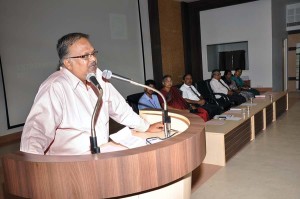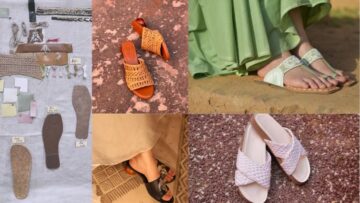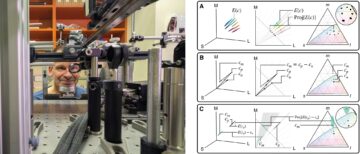
The aim of the project, proposed by DFSME is to strengthen the textile value chain for sustainable clothing based on Nordic and/or European eco labels and thus help in bridging the gap between public and private demand for green textiles while also capitalizing on the Tirupur cluster being the first ever in the world to have Zero Liquid Discharge technology. Though Tirupur has been in the eye of storm due to pollution concerns, this proposed project would, “provide a unique opportunity to claim itself as a Green Zone which can give us a marketing edge compared to other clusters in India and the competitive countries,” informs Manikandan G., President, Capsule Indus Foundation.
Based on the findings of a project, which carried out a number of assessment surveys and awareness workshops in 2012 titled ‘Tracking Environmental Change in the Textile Cluster of Tirupur’, the textile hub has come a long way in implementing environmental standards in order to live up to the zero liquid discharge regulations. The analysis made through the report shows that there is great potential to work with a number of interested textile companies in Tirupur to make their businesses models more sustainable and cost-efficient in order to present green production as a competitive business. “The products made out of this cluster could be identified as Made in Tirupur, providing an edge over similar clusters in India,” avers Manikandan.
In order to improve sales of eco – labeled textiles in the Nordic countries, the report showed that it would be helpful to use green tags or eco labels to buyers and consumers to push demand. But in times, where the market is flooded with various green labels it becomes critical for any new eco label to be widely accepted by the buyers, which in this case is finding acceptance by some of the best Nordic brands and other European brands as well. “EU eco labels are the largest accepted environmental labels in Nordic Region and it requires the same standard similar to OEKOTEX, GOTS, etc. which are also well known in Europe,” remarks Manikandan, which in future will make these Nordic eco labels no different from other well known eco labels in the market.
Meanwhile the extended project would be based on capacity building of local companies and organizations towards green tags and EU eco labels; capacity building sustainable business models and market opportunities and also organizing workshops at Tirupur and the Nordic regions, respectively. “The main course of this planning is to make the stakeholders sustainable through environmental awareness programs, productivity development training courses and promoting their business by providing opportunities to meet with similar objective stakeholders in the Nordic Region,” asserts Manikandan. As 90 per cent of the knitwear export is out of Tirupur, this project is the starting point towards sustainable production. Although restricted to Tirupur alone, “DFSME sees some possibility of doing similar projects after this in other clusters. Tirupur can be a model for other interested buying regions and related agencies all over the world,” concludes Manikandan.






